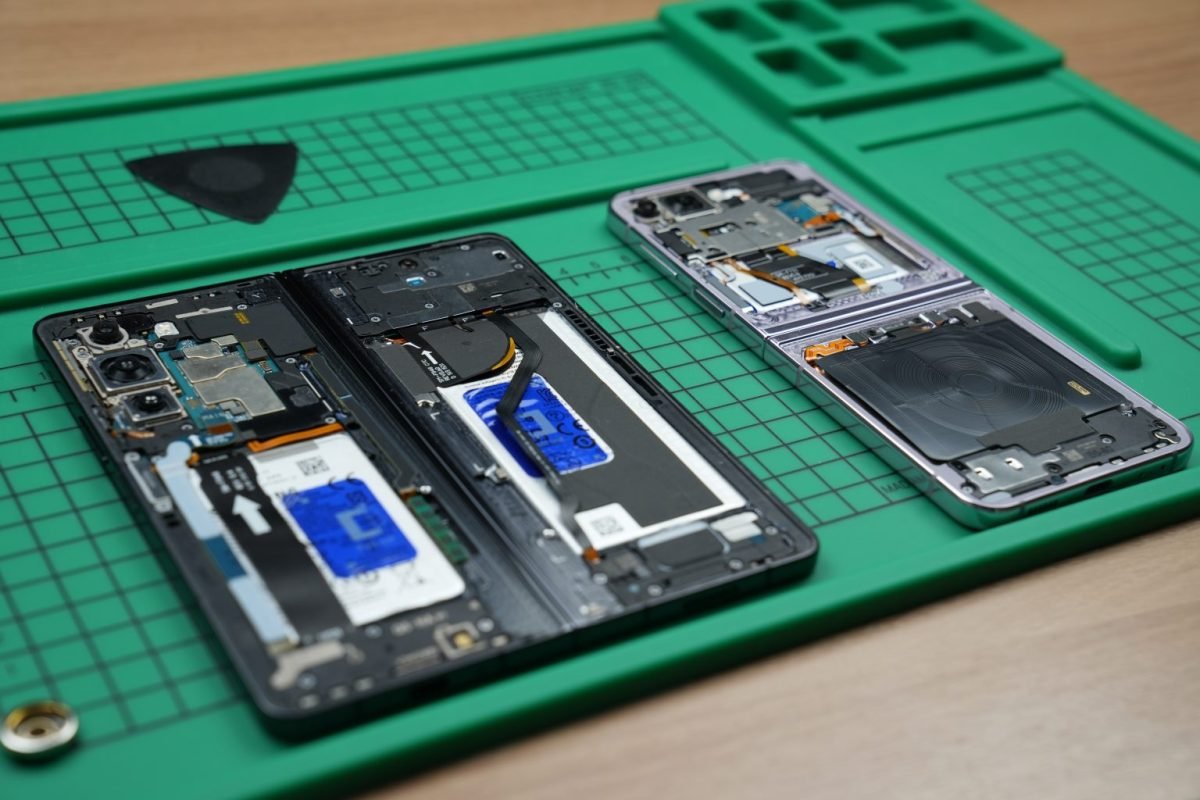Samsung has been making waves in the tech industry since the launch of its self-repair program back in August of 2022. In their ongoing effort to provide customers with more options, the company is aggressively expanding their program. This week’s update adds even more devices to their already impressive list, totaling 50 products. This includes smartphones, tablets, TVs, laptops, monitors, soundbars, and even a projector.
Among the 14 new devices, you’ll find the highly anticipated Galaxy S23 series, as well as the Galaxy Z Fold 5, Galaxy Z Flip 5, and Galaxy Tab S9 series. But that’s not all – the line-up also boasts the new Galaxy Book 2 series and the innovative Freestyle 2 projector.
This news also brings with it a wider range of repair options for Samsung users. In addition to offering replacements for displays, charging ports, and back glass, Samsung now provides fixes for smaller parts such as speakers, SIM trays, side keys, and volume buttons for their smartphones and tablets. Meanwhile, the Galaxy Book line now includes repair options for speakers and fans.
In an effort to provide customers with better deals on replacement components, Samsung has partnered with Encompass Supply Chain Solutions. They have also established a multi-year collaboration with popular DIY repair service, iFixit. Both of these partnerships contribute to their approach towards accessibility, which is similar to that of Google’s.
However, not all tech giants share this mindset. Apple, for example, has faced criticism for their controversial practice of ‘parts-pairing.’ This involves linking a component’s serial number to a specific phone, making it more difficult – or even impossible – to use third-party parts. This issue has been a major factor in the proposed right to repair bill in Oregon, which builds upon California’s recent legislation while also aiming to combat parts-pairing.








